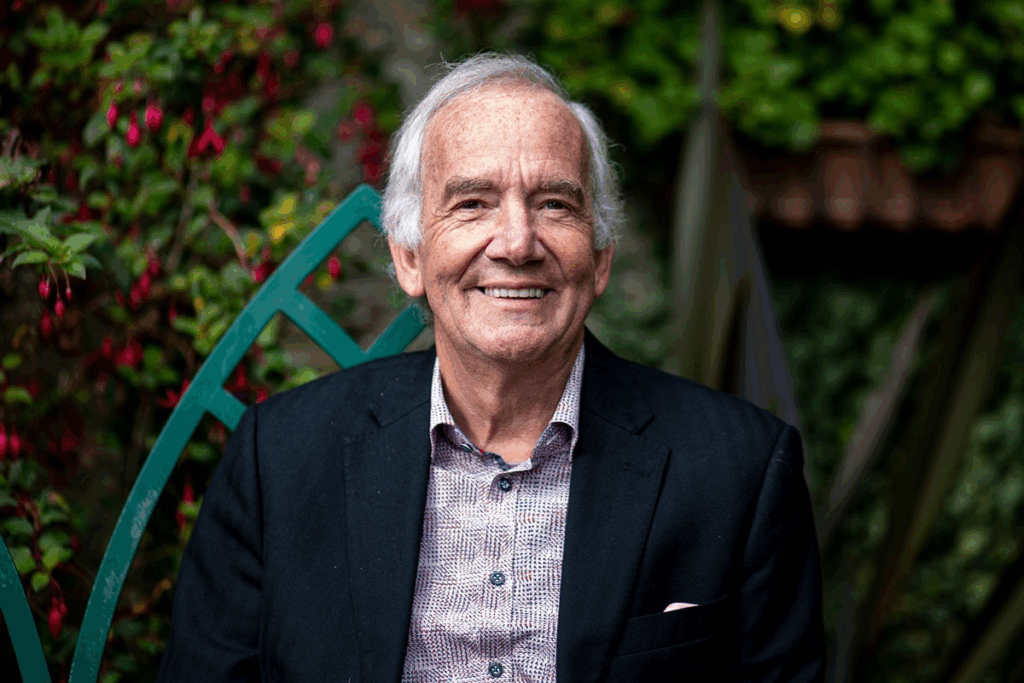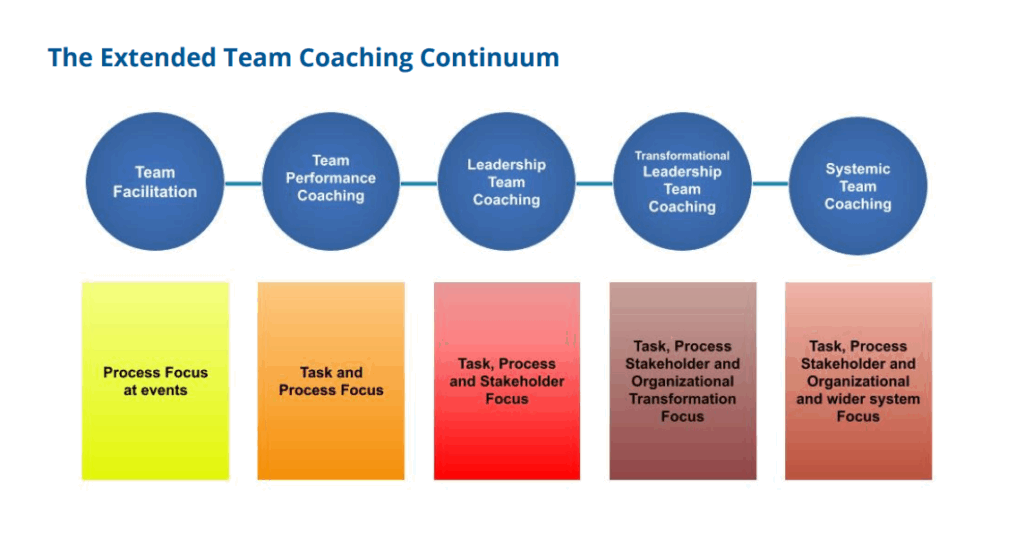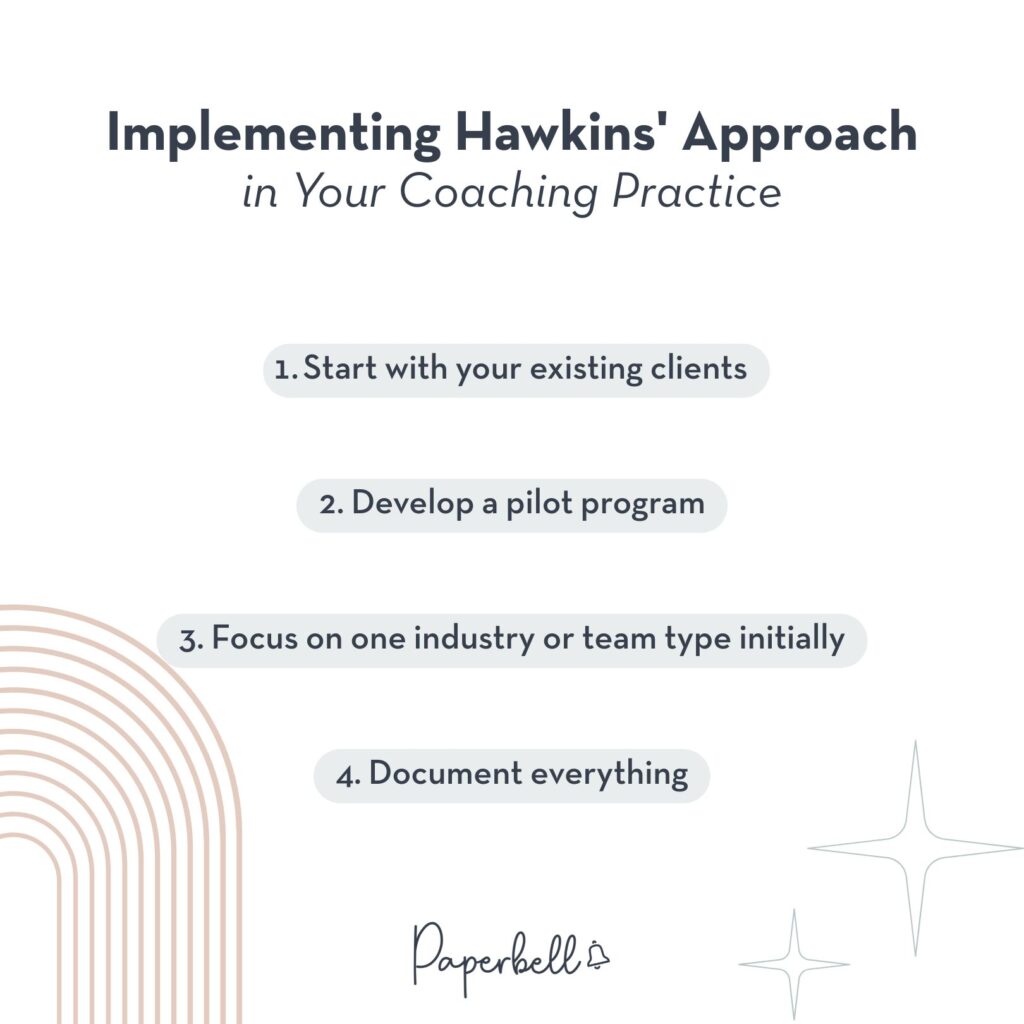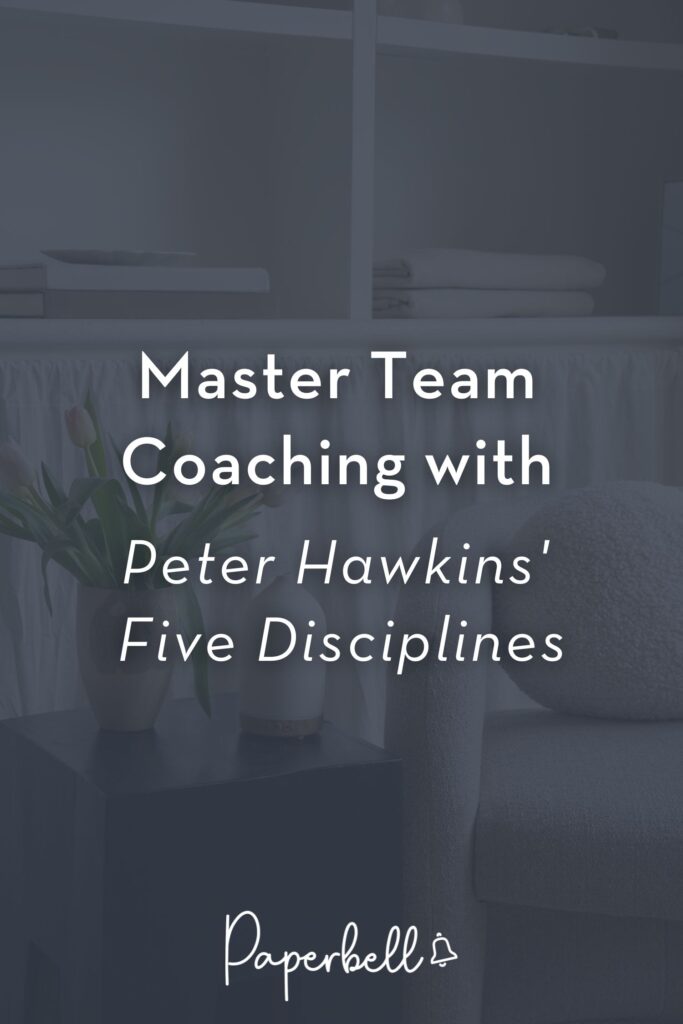If you’re a coach who wants to expand beyond individual coaching sessions and make a bigger impact on organizations, you’ve probably come across the name Peter Hawkins.
But who exactly is this influential figure, and why does his approach to team coaching matter so much?
Team coaching is becoming increasingly important as organizations realize that high-performing teams, not just individual members, drive success. And Peter Hawkins literally wrote the book on it (several, actually).
In this guide, you’ll learn everything you need to know about Peter Hawkins and his revolutionary approach to team coaching. You’ll discover how to apply his methods in your own coaching practice, and why getting trained in advanced team coaching skills could transform your coaching business.
Who is Professor Peter Hawkins?
Professor Peter Hawkins is a pioneering figure from London who has fundamentally shaped how we think about team development and organizational coaching.

Currently serving as Professor of Leadership at Henley Business School, University of Reading, Hawkins brings over 30 years of experience in helping organizations worldwide connect their strategic change, organizational culture, and leadership development.
His credentials are impressive: Emeritus Chairman of Bath Consultancy Group, visiting professor at multiple universities including Bath and Oxford Brookes, and author of numerous influential books on coaching and leadership.
But what really sets Hawkins apart is his practical approach as a professional coach. He doesn’t just theorize about coaching from an ivory tower. For the past three decades, he’s helped organizations navigate complex challenges and transform their teams.
He’s also been credited with pioneering team coaching as a distinct discipline! Before Hawkins, most coaching focused on individuals. He recognized that in our interconnected world, coaching entire teams could create exponential impact.
From there, he developed the CLEAR coaching model. This coaching model emphasizes Contracting, Listening, Exploring, Action, and Review.
Hawkins has authored several groundbreaking books that have become essential reading for serious coaches, including but not limited to:
- “Leadership Team Coaching: Developing Collective Transformational Leadership”
- “Creating a Coaching Culture”
- “Systemic Coaching: Delivering Value Beyond the Individual”
His most recent work continues to address what he sees as a critical gap: the growing disconnect between rapidly changing leadership challenges and how leadership development programs fail to keep pace.
Today, you can’t discuss team coaching or team coaching education without mentioning Hawkins’ influence. His frameworks are taught in coaching certification programs worldwide, and his systemic approach has become the gold standard for coaching professionals working with leadership teams.
Team Coaching According to Peter Hawkins
So what exactly is team coaching in Hawkins’ view? It’s not just group coaching with a different name.
According to Hawkins, team coaching is “a process by which a team coach works with a whole team, both when they are together and when they are apart, in order to help them improve both their collective performance and how they work together.”
Notice the key elements here:
- Working with the whole team (not just individuals)
- Supporting them both together and apart
- Focusing on collective performance
- Improving how they work together
This definition revolutionized leadership coaching and executive coaching because it acknowledges that teams are more than the sum of their parts. You can have a team of individual stars who collectively underperform because they don’t know how to work together effectively.
So, why should coaches care about team coaching education? Because organizations desperately need it.
Research shows that 75% of cross-functional teams are dysfunctional. Yet, virtually all work happens in teams. This creates a massive opportunity for coaches who can help teams perform better via team coaching education.
Hawkins makes a compelling case that team coaching delivers:
- Faster decision-making
- Better innovation through diverse perspectives
- Increased engagement and retention
- More effective strategy execution
- Stronger organizational culture
For coaches, this translates to higher-value engagements, longer client relationships, and the satisfaction of creating systemic change rather than just individual improvements.
Ready to launch your own team coaching website and wow your clients? Paperbell is the all-in-one coaching platform you need! Try it for free.
The Hawkins Model of Team Coaching Education
At the heart of Hawkins’ approach is his Five Disciplines model. This framework provides a comprehensive roadmap for developing high-performing teams.

The five disciplines of team coaching education are:
- Commissioning: Understanding why the team exists and what it needs to deliver to stakeholders.
- Clarifying: Developing clear purpose, vision, and objectives that align with organizational needs.
- Co-creating: Building strong working relationships and processes within the team.
- Connecting: Managing relationships with key stakeholders outside the team.
- Core Learning: Continuously learning and adapting as a team.
What makes this model powerful is its holistic nature. Many teams focus only on internal dynamics (co-creating) while neglecting their stakeholder relationships (connecting) or their fundamental purpose (commissioning).
So how do you apply this during a team coaching engagement?
Let’s say you’re coaching a leadership team that’s struggling with execution. Here’s how you might apply the five disciplines:
Start with commissioning. Meet with the team’s key stakeholders to understand expectations. What does success look like from their perspective?
Then, move to clarifying. Facilitate sessions where the team develops a shared understanding of their purpose and goals. Are they aligned on what they’re trying to achieve?
Next, focus on co-creating. Help the team examine their meeting practices, decision-making processes, and communication patterns. Where are the breakdowns?
Once that’s done, address connecting. Map out key stakeholder relationships. Who needs to be engaged? How well is the team managing these relationships?
The final step is to embed core learning. Establish regular review cycles where the team reflects on what’s working and what needs to change.
The beauty of this model is its flexibility. You don’t always work through the disciplines in a linear way. Sometimes a team needs to start with co-creating because relationships are so fractured that nothing else can happen until trust is rebuilt.
Common Challenges of Team Coaching and How to Overcome Them
Even with a solid framework, team coaching education presents unique challenges:
- Challenge: Team members resist being coached together.
Solution: Start with individual conversations to understand concerns, then design initial sessions that feel safe and valuable to everyone.
- Challenge: The team leader dominates discussions.
Solution: Establish clear ground rules and use structured processes that ensure all voices are heard.
- Challenge: Team members don’t follow through on commitments.
Solution: Build accountability into the process by having the team publicly commit to actions and review progress together.
Getting Certified in Systemic Team Coaching
If you’re serious about implementing Hawkins’ approach, getting certified via a team coaching program can speed up your learning and improve your credibility.
Hawkins offers the Systemic Team Coaching Certificate through various training organizations worldwide, including:
- The Academy of Executive Coaching (AoEC)
- Coaching.com
- The International Coaching Federation (ICF)
Beyond the obvious credibility boost, a certification in team coaching offers several advantages, including:
- Deep coaching skills development
- Access to proven tools for developing teams and more
- A network of team coaches worldwide
- A way to stand out from your competition as a professional coach
- Ability to command higher rates for your coaching packages
But, let’s be honest. Getting an advanced certification in team coaching like this requires a significant investment.
The Systemic Team Coaching Certificate typically involves:
- 10-13 weeks of coaching training
- Practice assignments between modules to develop your team coaching skills
- Supervision sessions throughout the coaching journey
- Investment ranging from $1850 to $3376, depending on location and format
However, you can command significant fees once you’re finally a certified team coach. For example, the Action Learning Associates coaching business charges anywhere from $1,000 to $4,000 per person for 6 months for team coaching, and up to $100,000 per person for organizational coaching!
How to Use Paperbell to Manage Team Coaching Services
Once you’ve got your team coaching certification and you’re ready to offer team coaching, you need systems to manage the complexity of these engagements. Unlike individual coaching, where you might have simple recurring sessions, team coaching engagements involve:
- Multiple stakeholder meetings
- Various session formats to guide teams (full team, sub-groups, individual check-ins)
- Complex scheduling across many calendars
- Extensive documentation and resources
- Multi-party contracts
Paperbell handles all of this seamlessly, on top of giving you a professional and polished coaching website. You can create different coaching packages for your various team coaching offerings, manage complex scheduling, and keep all your team resources in one place.
Implementing Hawkins’ Approach in Your Coaching Practice

Ready to start incorporating team coaching into your practice? Here’s how to start.
- Start with your existing clients. Look for opportunities within your current client base. Are any of your individual clients part of teams that could benefit from coaching?
- Develop a pilot program. Create a simplified team coaching offer to test the waters. Maybe it’s a half-day to cover conflict resolution techniques, or a three-month team dynamics program.
- Focus on one industry or team type initially. Whether it’s leadership teams, project teams, or startup founding teams, specializing in a single coaching niche helps you dive deeper in your expertise, and fast.
- Document everything. Team coaching generates lots of insights and patterns about group dynamics. Keep detailed notes that you can turn into frameworks and tools for future engagements.
How to Structure and Price Team Coaching Packages
Team coaching packages look different from individual coaching. Here’s a typical structure:
Discovery Phase (1-2 months)
- Stakeholder interviews
- Team assessment to gain insights
- Initial live sessions with team
- Report and recommendations
Core Coaching Phase (3-6 months)
- Monthly full team sessions (half or full day)
- Individual check-ins between live sessions
- Stakeholder updates
- Access to resources and tools
Embedding Phase (1-2 months)
- Transition planning
- Final live session with team
- Stakeholder review
- Follow-up support
Prices can vary widely, but the typical cost is $1,000 to $5,000 per person for a six-month engagement.
FAQs About Peter Hawkins and Team Coaching
What is Professor Hawkins best known for?
Professor Peter Hawkins is best known for pioneering team coaching as a distinct discipline and developing the Five Disciplines model of team coaching. He literally wrote the book on team coaching and created frameworks, such as the CLEAR coaching model, that are now used by coaches worldwide.
What is the Hawkins model of team coaching?
The Hawkins model centers on Five Disciplines: Commissioning (understanding stakeholder needs), Clarifying (defining purpose and goals), Co-creating (building internal relationships), Connecting (managing external relationships), and Core Learning (continuous improvement).
What is team coaching?
Team coaching is a process where a coach works with a whole team to improve their collective performance and collaboration. Unlike group coaching where individuals are coached in a group setting, team coaching focuses on the team as a system.
Transform Your Coaching Practice with Team Coaching
Peter Hawkins has given coaches a powerful framework for creating real organizational change. By moving beyond individual coaching to work with entire teams, you can multiply your impact and command premium fees.
Ready to add team coaching to your practice? Paperbell makes it easy to manage the complexity of team coaching while you focus on what you do best: helping teams reach their full potential.
Create your free Paperbell account today and get your free website set up in under an hour.










